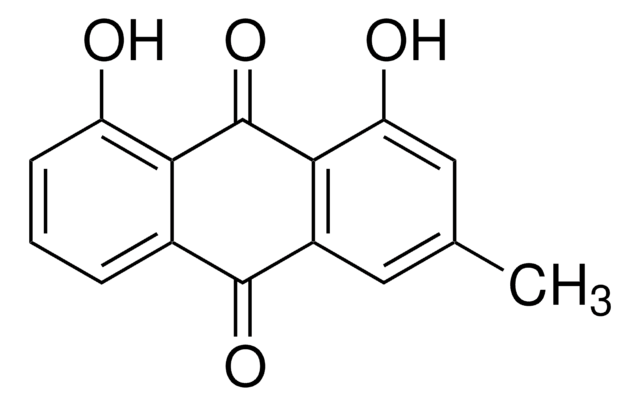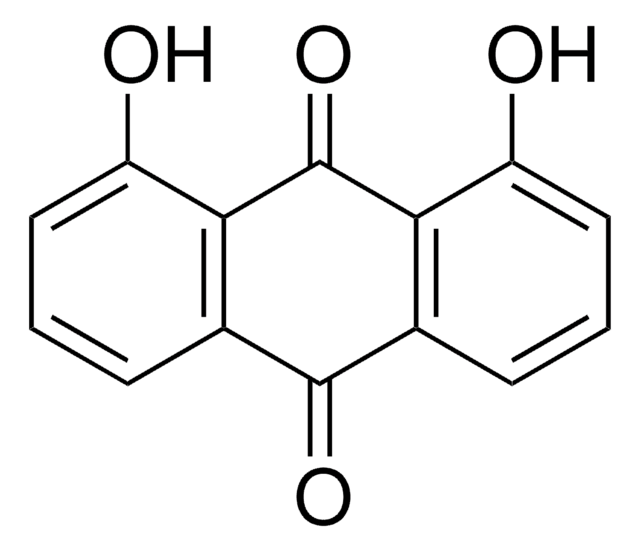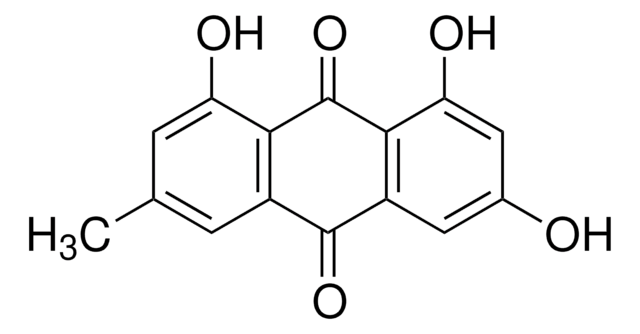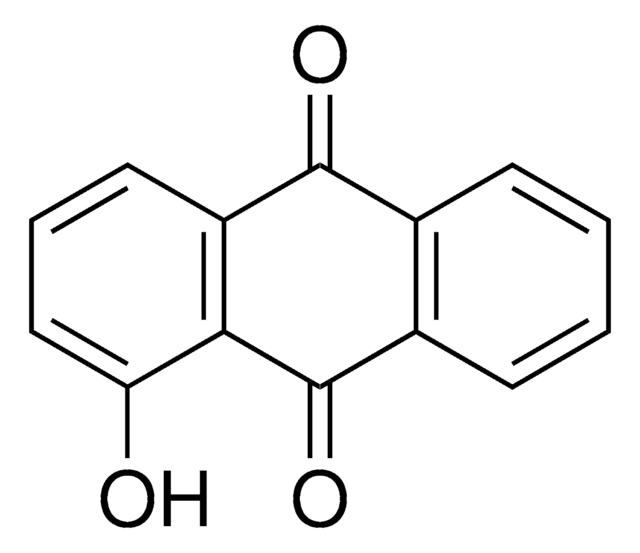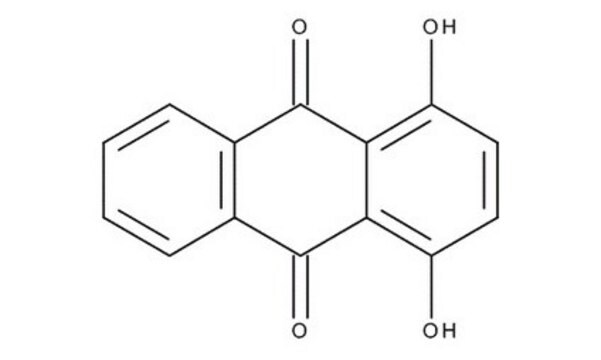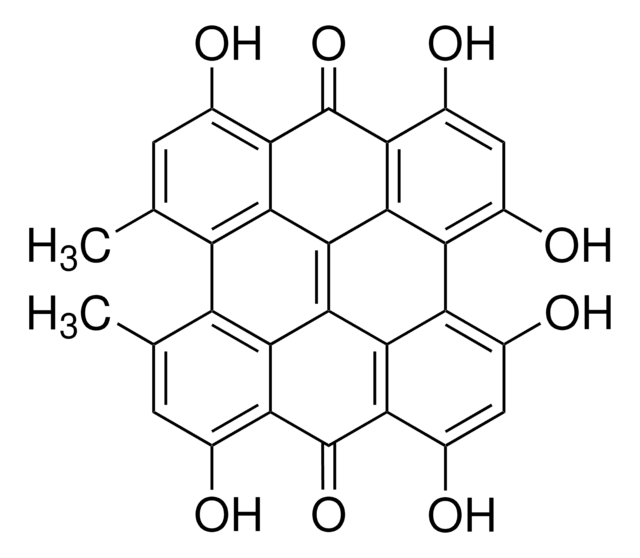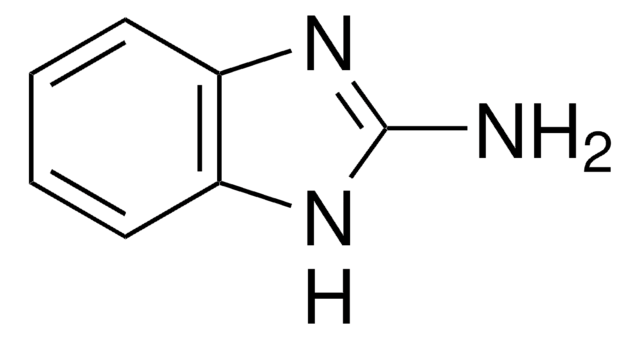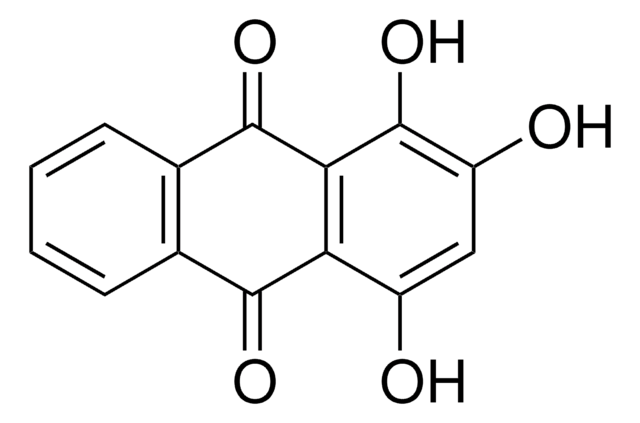229075
1,8-Dihydroxy-3-methylanthraquinone
98%
Synonyme(s) :
3-Methylchrysazin, Chrysophanic acid
About This Item
Produits recommandés
Pureté
98%
Forme
crystalline
Couleur
yellow-orange
Solubilité
chloroform: 1%
Spectre d'activité de l'antibiotique
neoplastics
viruses
Mode d’action
enzyme | inhibits
Chaîne SMILES
Cc1cc(O)c2C(=O)c3c(O)cccc3C(=O)c2c1
InChI
1S/C15H10O4/c1-7-5-9-13(11(17)6-7)15(19)12-8(14(9)18)3-2-4-10(12)16/h2-6,16-17H,1H3
Clé InChI
LQGUBLBATBMXHT-UHFFFAOYSA-N
Informations sur le gène
human ... ELA2(1991)
Vous recherchez des produits similaires ? Visite Guide de comparaison des produits
Application
Actions biochimiques/physiologiques
Autres remarques
Mention d'avertissement
Warning
Mentions de danger
Conseils de prudence
Classification des risques
Eye Irrit. 2 - Skin Irrit. 2 - STOT SE 3
Organes cibles
Respiratory system
Code de la classe de stockage
11 - Combustible Solids
Classe de danger pour l'eau (WGK)
WGK 3
Point d'éclair (°F)
Not applicable
Point d'éclair (°C)
Not applicable
Équipement de protection individuelle
dust mask type N95 (US), Eyeshields, Gloves
Certificats d'analyse (COA)
Recherchez un Certificats d'analyse (COA) en saisissant le numéro de lot du produit. Les numéros de lot figurent sur l'étiquette du produit après les mots "Lot" ou "Batch".
Déjà en possession de ce produit ?
Retrouvez la documentation relative aux produits que vous avez récemment achetés dans la Bibliothèque de documents.
Notre équipe de scientifiques dispose d'une expérience dans tous les secteurs de la recherche, notamment en sciences de la vie, science des matériaux, synthèse chimique, chromatographie, analyse et dans de nombreux autres domaines..
Contacter notre Service technique